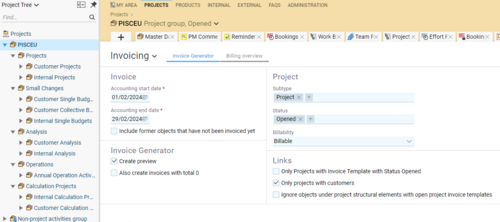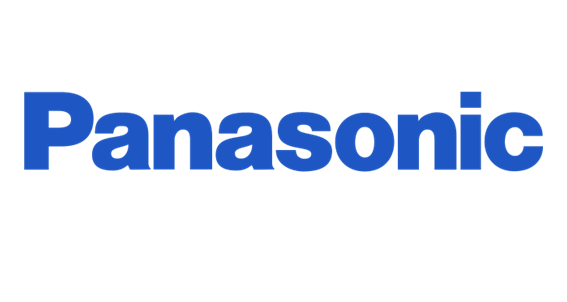Flexibility, speed and reliable data
User report from Panasonic Europe B.V.
The European IT division of the electronics group uses Projektron BCS from project planning to preparatory invoicing. With the connection to the SAP system, the data for project accounting is reliable and the invoicing process has been accelerated. The interface between BCS and SAP is a best practice.
Panasonic Europe B.V. - IT Support in Europe
Panasonic Europe B.V. is the European IT division of Panasonic. Around 170 employees work at our headquarters in Hamburg and other locations in Germany, England, Italy, Spain, Austria, Poland, Hungary and the Czech Republic. We serve all European business units of the electronics group and offer over 90 different IT services.
The project landscape at Panasonic Europe B.V.
We are certified according to ISO 27001 (information security), ISO 27017 (cloud security) and carry out projects according to the PMI framework or provide services according to ITIL. Our IT projects range from application development and infrastructure projects to software launches and website development.
Every year, we carry out around 200 projects for around 30 business units. These range from small projects, which are completed after a few weeks, to complex projects with durations of over a year.
In large projects such as the introduction of SAP HANA or the introduction of a new central workflow platform, we take an iterative approach using agile methods. We work on our projects as experts in project management and IT, but are also supported by external employees.
Search for flexible project management software
One of our colleagues was introduced to Projektron BCS software at CeBIT 2014. At that time, we were reaching the limits of our previous project management solution - we were using an SAP module that was too inflexible for our purposes.
At first glance, Projektron BCS seemed very flexible and customizable. We were also convinced by the costs: running BCS is much cheaper than running the previous solution. The decision in favor of BCS was therefore quickly made and the switch to Projektron BCS meant above all greater flexibility and an extended range of functions for us.
BCS deployment at Panasonic Europe B.V.
The implementation project comprised two phases:
First, BCS was set up and adapted to the needs of Panasonic Europe B.V. . Project groups and specific project criteria were defined and separate roles and placeholders for resources were created. The focus was on project planning, time recording and data exports using .csv files for invoicing. Before the go-live, some selected projects were migrated manually. In the second phase, the SAP connection for invoicing was implemented via WebServices.
We involved the future users in the process coordination at an early stage in project team meetings. All project managers received internal training, which we continue to offer on a regular basis. We use our own training materials, which are tailored to our approach, to familiarize new employees and offer refresher training for those who only come into contact with Projektron BCS from time to time. Key users, who are very familiar with the software, also help with familiarization or acute questions.
We have been using Projektron BCS since 2015, we have been able to optimize our project management process and many users are already using BCS to create a project offer. As all the necessary resources are available in the system and correctly maintained, the quotations can be very accurate. Once the purchasing organization has approved the project budget, a project is created in BCS and a referring internal order is created in SAP. The necessary SAP data (e.g. the sales order ID) is maintained in BCS in order to create the framework conditions for SAP integration. The project manager then takes over the processing. Two different wizards for internal or customer projects are used to help ensure that no planning step is skipped. We use templates to simplify project structure, team and effort planning. Employees particularly appreciate the flexibility and speed of planning in BCS.
In addition to project planning and time recording, provisional invoicing and the connection to SAP are particularly relevant for us. In preparation for invoicing, the project data and bookings are processed in BCS, then a provisional invoice is created, which is checked and corrected if necessary. BCS is the leading system for the content of project invoices or credit notes - the “single source of truth”. The data is then transferred to SAP via middleware and the invoices are processed in SAP until they are paid by the customer.
Originally, we had solved the data exchange via .csv exports. However, errors did not become apparent during this exchange and there was no automated check. With the introduction of provisional invoicing in BCS and the switch to a WebServices interface, we now have reliable data. Certain automated and manual checks in BCS ensure this - for example, there is an approval process for hourly bookings by the project managers. At the end of each month, the system only considers the approved, billable entries, further checks are carried out on the SAP side (e.g. for data consistency) and the data transfer is also checked so that manual corrections in both systems are only necessary in exceptional cases.
Conclusion: More flexibility and transparency
Overall, the introduction of BCS has made us more flexible and given us more transparency in our projects. With regard to invoicing and the SAP connection via WebServices, the data transfer is now much more reliable and the two systems (BCS and SAP) have the same status. The error-prone nature of the .csv connection is a thing of the past and our invoicing process is faster.











